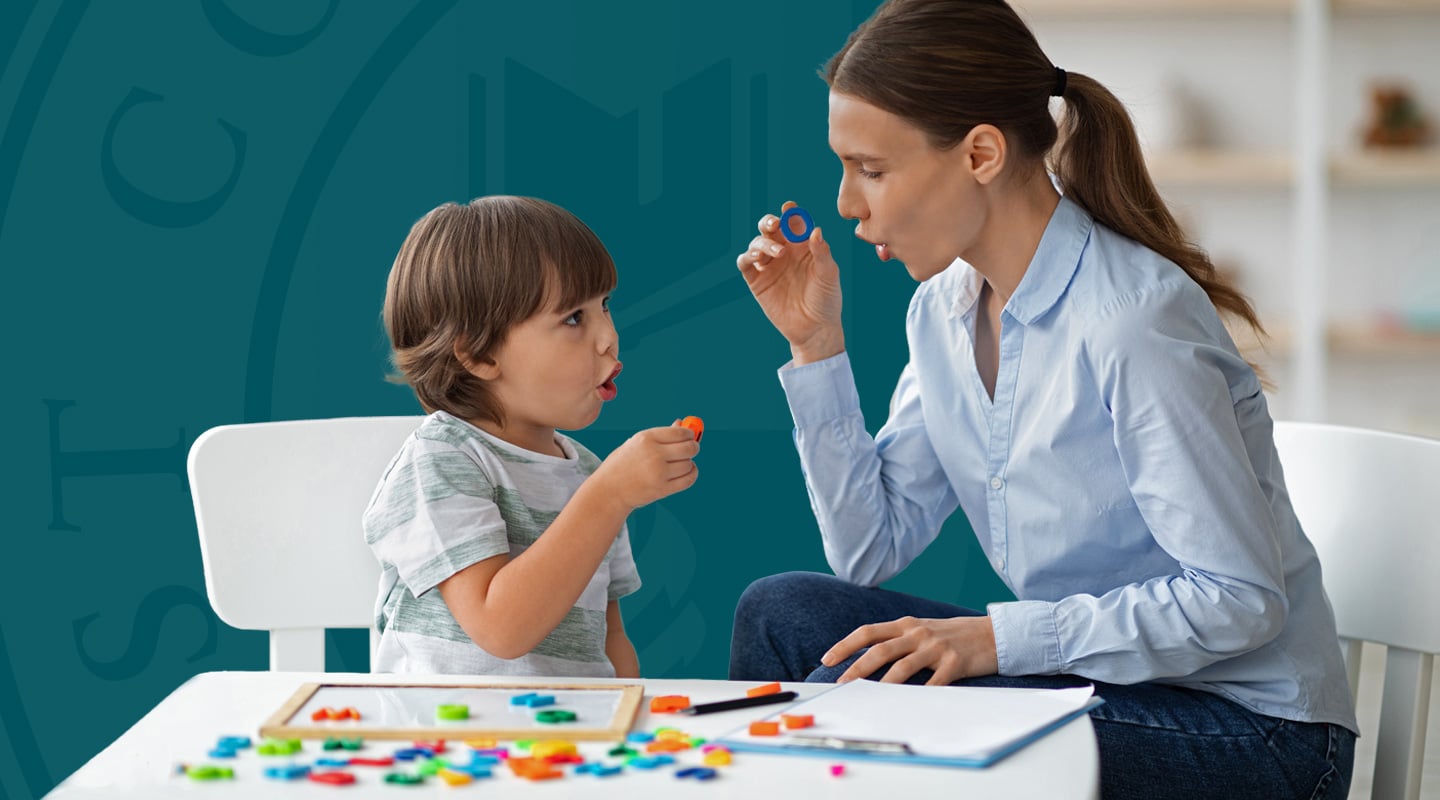When Should You See a Speech Pathologist for Language Disorders?
When Should You See a Speech Pathologist for Language Disorders?
Blog Article
How a Speech Pathologist Can Aid Improve Communication Skills
Reliable communication is a foundation of individual and specialist success, yet many people encounter challenges that hinder their ability to reveal themselves clearly. A speech pathologist is outfitted to address these barriers via targeted analysis and intervention methods customized to each person's needs. By utilizing evidence-based therapeutic techniques, they not only work to boost speech and language disorders yet also enhance overall communicative competence. Recognizing the multifaceted role of a speech pathologist exposes exactly how their competence can change lives, welcoming a more detailed evaluation of the specific techniques and results linked with their practice.
Comprehending Communication Problems
Comprehending communication disorders is vital for identifying how they impact people' ability to express themselves and engage with others. Communication conditions include a vast array of problems that affect speech, language, and social communication, frequently preventing efficient interaction. These disorders can develop from different factors, including neurological problems, developing delays, physical problems, or mental issues.
Speech conditions might materialize as difficulties in expression, fluency, or voice production, impacting exactly how words are obvious or talked. Language conditions, on the other hand, include difficulties in understanding or using language, which can restrain both non-verbal and spoken communication. Social communication disorders are defined by troubles in the practical facets of communication, such as taking turns in conversation or understanding social signs.
The consequences of interaction problems are profound, influencing not only the individual's capability to convey ideas and feelings but additionally their social relationships, academic opportunities, and general high quality of life. Awareness of these disorders can promote compassion and assistance, urging effective approaches for communication and involvement. Recognizing the intricacies of communication disorders is a critical step towards advertising inclusivity and resolving the demands of those influenced.
Function of a Speech Pathologist
Speech pathologists often play an essential duty in diagnosing and dealing with interaction disorders, using a variety of evidence-based techniques customized to every individual's demands. These specialists collaborate with people throughout the life expectancy, from kids with speech hold-ups to adults recuperating from strokes or terrible mind injuries. Their proficiency encompasses a selection of communication problems, including articulation, voice, fluency, and language problems.
In therapeutic settings, speech pathologists utilize structured interventions created to boost communication abilities. They might carry out methods such as speech workouts, language games, and social interaction training to promote improvements in meaningful and receptive language abilities. Speech Pathologist. In addition, they enlighten customers and their households concerning effective interaction techniques and flexible methods to navigate day-to-day interactions
Beyond direct therapy, speech pathologists work together with various other medical care educators, caregivers, and specialists to ensure a thorough technique to treatment. They advocate for customers by supplying sources and assistance, making it possible for people to attain their communication goals and improve their overall lifestyle. As professionals in the area, speech pathologists are crucial in cultivating effective interaction, advertising freedom, and boosting social involvement for those with communication obstacles.
Analysis and Diagnosis Process
The analysis and diagnosis procedure performed by speech pathologists usually involves a detailed analysis to identify communication disorders precisely. This procedure starts with a comprehensive situation history, where the clinician collects important information concerning the person's medical, academic, and developing history. Understanding the context of the person's communication troubles is important for an exact medical diagnosis.
Adhering to the medical history, speech pathologists make use of standard tests and informal evaluations to evaluate various aspects of communication, including speech sound production, language comprehension, expressive language, and social interaction abilities. These assessments are customized to the individual's age and particular concerns, giving useful data for evaluation.
Observation is additionally an essential element of the assessment process, as it allows the medical professional to see firsthand exactly how the individual interacts in natural setups. Additionally, interviews with family members and educators can supply insight into the person's communication obstacles across different settings.
Once the assessment is total, the speech pathologist manufactures the findings to figure out a medical diagnosis and recommend proper interventions. This reference detailed evaluation procedure ensures that individuals get targeted assistance tailored to their special interaction needs, laying the structure for effective therapeutic methods.
Healing Techniques and Techniques
Countless therapeutic techniques and techniques are used by speech pathologists to address a range of interaction conditions properly. One widely utilized method is articulation therapy, which concentrates on dealing with speech appears through repetition and visual cues. This method is especially valuable for people with speech sound problems.
An additional reliable technique is language intervention, which improves both expressive and receptive language skills. This might include interactive tasks that promote vocabulary growth, sentence framework understanding, and conversational abilities. Furthermore, speech pathologists usually make use of social abilities educating to boost practical language capacities, making it possible for people to navigate social interactions much more successfully.
Fluency shaping and stuttering modification strategies are specifically created to assist those experiencing fluency disorders. These methods aid customers create smoother speech patterns and manage the psychological and physical elements of stuttering.
Furthermore, augmentative and different communication (AAC) systems are utilized for individuals with severe communication problems. These systems, which can include motions, signs, or electronic gadgets, offer essential support for effective communication.
Benefits of Speech Therapy

In addition, speech therapy can help in developing essential listening and comprehension skills, cultivating far better communication in conversations. Individuals with cognitive-communication conditions can likewise benefit, as therapy concentrates on enhancing memory and analytical capabilities, crucial for reliable communication.
One more critical facet is the emotional support supplied during treatment sessions. Speech pathologists create a secure environment, motivating individuals to overcome anxiety and irritation pertaining to their interaction concerns. This support can bring about improved self-worth and overall psychological wellness.
Furthermore, very early intervention through speech therapy can avoid additional problems, ensuring that people reach their complete communicative capacity. On the whole, the advantages of speech therapy extend past mere speech his comment is here improvement, positively impacting numerous dimensions of life for those influenced by communication difficulties.
Verdict
In recap, speech pathologists play a crucial duty in dealing with communication conditions via analysis, diagnosis, and tailored healing interventions. By utilizing evidence-based methods, these specialists news boost people' speech and language capabilities, cultivating improved clarity, fluency, and social communication skills. The advantages of very early treatment emphasize the relevance of seeking support from speech pathologists, as their expertise can dramatically improve communicative potential, eventually bring about higher success in both individual and professional rounds.

Speech pathologists often play an important function in treating and diagnosing communication disorders, employing a range of evidence-based strategies tailored to each person's requirements. As professionals in the area, speech pathologists are necessary in cultivating efficient interaction, advertising self-reliance, and boosting social involvement for those with communication obstacles.

Report this page